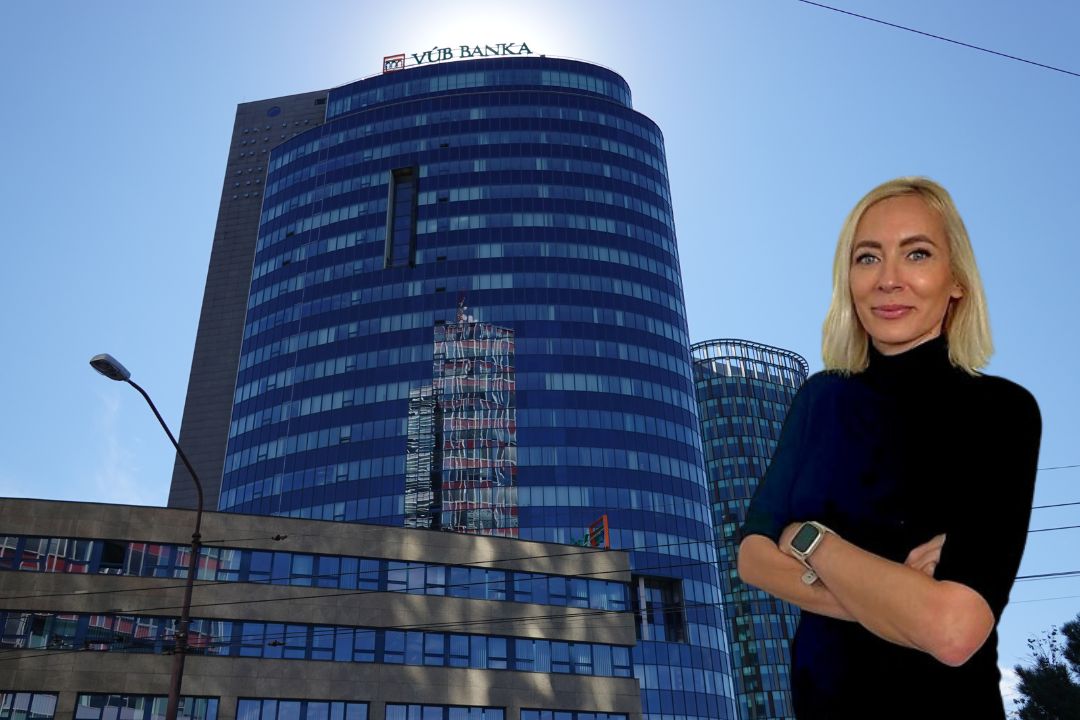How have you been forced to adjust your lending business over the last 18 months?
The changes started during the second half of last year. For example, there was a halt to sales in the residential market. In the 70 or so projects we’re involved in, there were just a dozen sales during the last six months of 2022. We focus on mid-sized projects all over Slovakia of between €10 million and €15 million. In Bratislava, the projects are usually larger and it’s the big-name developers who insist on conditions that we’re not always able to approve. We have a very restrictive policy from Italy, meaning we can’t accept low equity deals.
Did residential sales stop because of a lack of supply? Or of buyers?
It was on the buyer’s side. Thanks to the increase in interest rates, people weren’t taking out mortgages, which slowed the market down dramatically. We’re one of the strongest mortgage banks, so we could see the effect. It fell 75% from month to month. Residential prices were already expensive in the first half of 2022, so it wasn’t about the prices. And it wasn’t about the war. It was about the credit conditions for the buyers.
How have developers reacted?
By 2023, they began adapting to the situation. Some began to do old types of marketing like supporting customers with their mortgages or giving them a free parking place. Really, it’s always just some form of a discount that goes up about €10,000. It’s helped start up sales again, so we support it. Across our portfolio, they’re selling up to 5 flats per quarter. That’s not great, but it was almost zero before that…so it’s a good sign. What’s interesting is that almost none of the buyers are speculative. They’re almost all end users.
What’s happened over the past few years when it comes to the size of your loan book in real estate?
Unfortunately, I have to say that Tatra bank has really grown quite large, I think they’re up to €1.5 billion or more in real estate lending. Slovenska Sporitelna has €1.2 billion, while we’re at €800 million. We used to be number two in the market, but then Erste really grew. Around half of the 150 assets in our portfolio are residential. For the past few years, the residential developers were doing so well, they didn’t have to draw down so much, because they were able to finance themselves through their clients. So, even if we booked the loan, they only drew down about 50% of it. Now things have changed, so they’re drawing down more.
How is 2023 looking for your business?
This year, we’ve already closed 10 new transactions, and most of them are residential. Our conditions are a bit stricter, because we need to ask for 30% equity than 20% and we have to play with the pre-sale levels. We’re working mostly with the developers we have a relationship with and who have a good location. There aren’t many good, new projects out there because of the lack of permits.
But building permits aren’t the only problem in Bratislava: it’s even become difficult to get your use permit. It can now take 6- 9 months. I have no idea why, because there’s usually no problem with the project itself. It’s not like the developer is adding an additional floor or something. There’s just a lack of people in the state administration.
What sort of complications does that cause?
It costs developers a lot of money, because they can’t collect money from their clients until they have the use permit. Of course, that ends up being good for the banks because the loans are with us for a longer period.
VUB is asking for 30% equity these days, which is up from 20%. At the same time, interest rates are up. How difficult is it at the moment to conclude new financing deals?
We aren’t doing many new rent-based projects with developers at the moment because they’re struggling with the high interest rates. Their financial costs have doubled compared to previous years, whether it’s for shopping malls, offices, or logistics. It can even be a problem if they want to refinance. They may not get the same amount again, because the debt service coverage ratio won’t allow it. In our cash flows, we used to count on 4% interest, all-in. Now it’s 6%. That’s hitting them a lot, so there aren’t a lot of new transactions.






